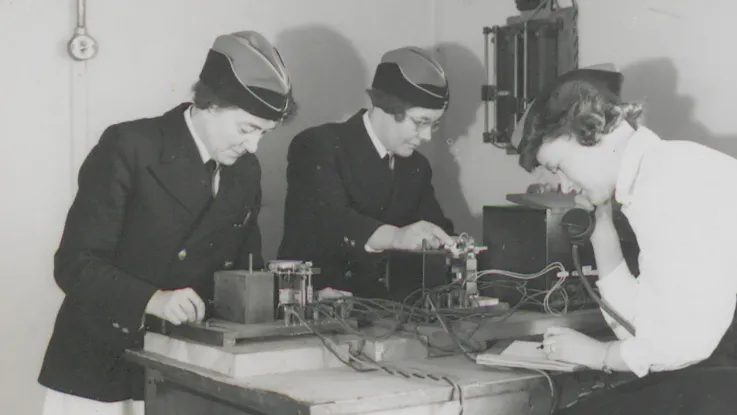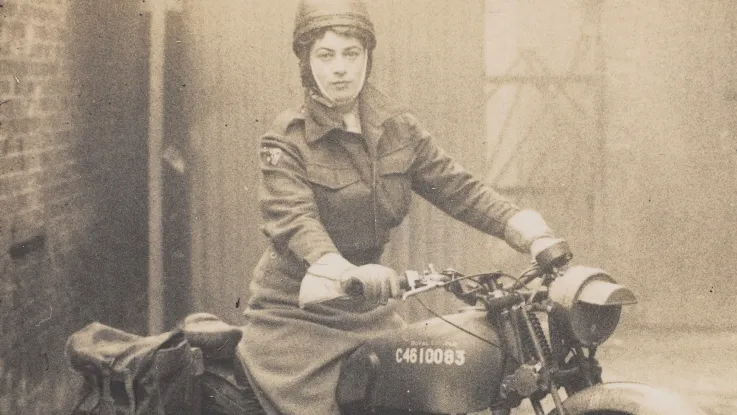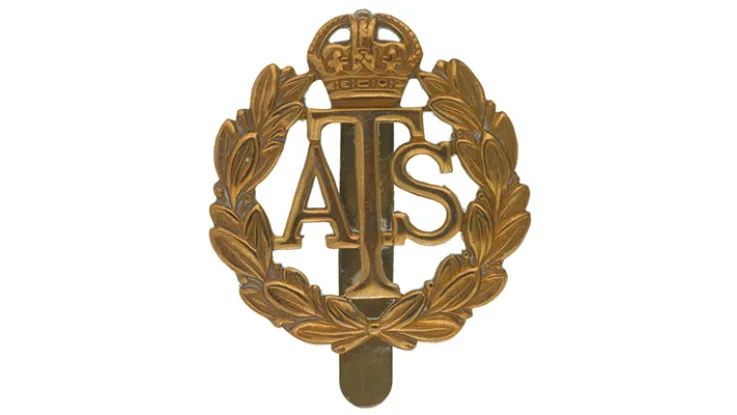Transcript: On the ranges
Audio transcript
Mary Coomer:
In an air raid there was 28 of us and six officers, uh, including one who came... one officer who came a bit later, who was a naval officer, Third Officer Pipe. She came down to help with... because the experimental ranges tested a number of things for the Army, Navy and Air Force before they were put into production and that was what we did the experiments on.
They were so short of equipment in 1940...
Interviewer:
After Dunkirk?
Mary Coomer:
Yes, we hadn’t got anything at all. And there were even old guns from the '14-18 war [the First World War], in which they were fitting new liners inside them - mortar guns, which are a smooth liner, we were fitting rifle linings in, to be able to use them at all.
And of course, by this time, uh, or a little bit later, 1940 at the end of '40, I went down, the beginning of '41, and Lord Beaverbrook was put in charge of production of different things, he used to come down quite a lot. Winston Churchill came down twice whilst I was there, and we used to have all the people who were wanting things doing quickly... General Sir John Dill came down, Sir Roger Keyes came down wanting things done quickly for the Navy.
And it's... on the ranges, they had a coach, which was turned into an officers' mess for all these high-up people that came. And actually it was the coach which Kitchener rolled across the Sudan in, and it had Kitchener’s badge at the side... on the side of it. Anyway, they used to come down, and they used to, uh, dine and stay in the officers' mess. But if they were looking at anything on the ranges, which had got its own railway system, they used to go up and down in this coach.
And we were there... the fortnight we were there, doing our training, four of them didn't make the grade and were sent back. Now, Colonel Lichtman, who was the superintendent of experiments, was very, very keen to have women there. And the men, were very, very keen...
Interviewer:
So Colonel Lichtman was very keen on having women?
Mary Coomer:
Very keen on having women. And I must admit we were better on the instruments... or as good as the men on the instruments. But the men were very, very keen not to have us, because in peacetime they had no, um, drills, they had special pay for danger pay, they had good quarters to live in, they didn't have any parades other than their pay parade, so it was a good place to be.
But, first of all, Wakering Road quarters were moved out, the men had to take their families out, the men were put in the barracks and the families moved, so that we had, the ATS, were put in a row of their quarters, which was against the grain to begin with, especially as a lot of them had planted things in their gardens at the back, for vegetables, for the war, and the ATS were put in. [laughing]
Description
This transcript is from a 1995 interview with Mary Coomer. (NAM. 1995-06-56)
Mary served in the Auxiliary Territorial Service from 1938 to 1945. She was one of the first to be selected to go to France with the British Expeditionary Force (BEF). After evacuating back to England in 1940, she served on the Home Front for the rest of the Second World War.



